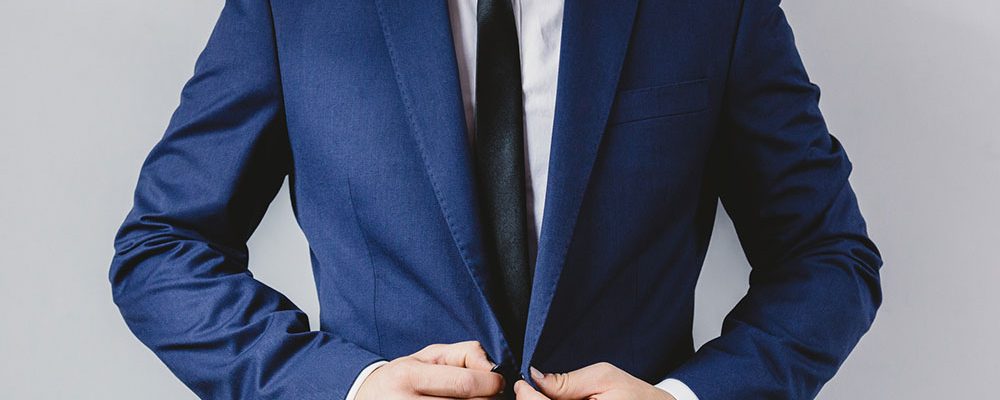Sweating palms, fidgeting, feeling nervous, self awkwardness and feeling sick, are all symptoms of the dreaded interview. Whether you are being interviewed for an in-house promotion, new job or presenting your business plan to one of Alan Sugar’s aides, interview nerves can sometimes get the better of you.
Interviews can be scary at the best of times, meeting a stranger for the first time, presenting yourself with confidence and ensuring that you tick all of the company’s boxes, can be a task in itself. As we enter a new decade, aim higher and turn your dream job application into a job offer.
“A lot of us for instance are good at our jobs but are absolutely hopeless at interviews”
Karl Wiggins – Wrong Planet
Here are our top 10 Interview tips, to help you combat those interview nerves and be a success in 2020.
Preparation
Before you attend the interview, have another read through of the job description, make sure you highlight some of the important skills, attributes and attitudes that the company and the interviewer may be looking for.
Try remembering a task or an experience in real-time, that could demonstrate your skills linked to the job description.
Give the interviewer detailed examples or statements from your work experience to date.
This shows the interviewer that you are the right person for the job role.
Another practical tip is to rehearse some of the potential answers to the questions that the interviewer may ask. This technique will ensure that your answers are on point and that you stick to the question which will prevent you from rambling and going off course.
You know you can do the job, you just need to make sure the interviewer believes in what you say and how you present yourself at the interview and how to make a great lasting impression.
Remember that an interview is a professional meeting to talk about business and to check that you tick all the boxes for the companies’ skills set. Knowing what the interviewer is looking for is half the battle.
According to Monster, Online Recruiter;
- 36% Managers were looking for multi-skills
- 31% Managers were looking for initiative
- 21% Managers were looking for a creative thinker
- 12% Managers were looking for something else.
Make sure you stand out of the crowd, but for the right reasons.
Practical Journey
It sounds basic, but plan your journey to the interview, it is a fundamental element that you arrive prompt, on time and fluster free.
Rule of thumb is that you should arrive 15 / 20 minutes before the actual time of the interview, this will ensure that you have time to freshen up.
Especially if you have had a long journey or have been on public transport, nip to the toilet and sit for 15 mins, in calm so that you are prepared to enter the interview feeling fresh, alert and ready.
It is advisable that you should do a dummy run so you know what time you should set off and to arrive there early.
It’s better to be earlier than later for an interview, as it’s respectful and more professional.
However, on the odd occasion, you are late, there may be an accident on the motorway, an obstacle in the road, causing a holdup or the mode of transport that you needed to take you to the interview, is late or just doesn’t turn up. If this ever happens to you, just call the agency who have set up the interview or the direct employer and explain what has happened, it is polite and courteous and then the employer can make the informed choice as to whether they wish to continue the interview or re-arrange it to a later date.
If getting to the interview using a car, have a look at Waze, it’s a great app as it can help you pre-plan your journey, it can research what the best time would be to leave your house to arrive let’s say 20 mins before the interview and if whilst using it as a satnav, if there are delays, it will pick up an alternative or quicker route.
Always make sure you have change for parking, as some small companies have no parking and may be on a high street, make sure you know where the nearest parking is, Waze has a feature that can also select the most convenient parking.
Imagine yourself looking and feeling confident in that new suit, questions prepared and then you are late by 30 minutes, because you got lost and forgot to take the address, how foolish would you feel and angry as you lost the opportunity that would have been yours.
Always prepare and plan.
What to Wear
It’s always hard to know what to wear to an interview, these days most people in offices, wear smart casual, rather than suits. However, for an interview, it is best to dress in something well fitting, good quality, pressed and positive. Here are some rules, for interview dressing;
Most interviewers would prefer to see;
Men
- Subtle is the key, colours that are suggested are dark grey and navy, with coordinated matching shoes and belt, grey, black and brown.
- Coloured shirts are distracting in an interview setting. Best coloured shirts are light blue, beige and white.
- A carefully chosen shirt, plaid or plain with a nice subtle pattern / print for tie, a must have for all formal interviews.
- Black suits are frowned upon as interviewers felt they were too severe.
- Appropriate socks, long coloured dress socks, suave and sophisticated.
- The jacket rule, if you wear a 2 button suit jacket, top button buttoned when standing or walking, bottom button unbuttoned sit down and unbuttoned both. This will demonstrate that you are here to do business.
Woman
- Don’t overdo jewellery, fine subtle works best, no chunky jewellery as gives you the urge to fiddle with it as you get nervous during the interview.
- Keep heels moderate, no higher than 3 inches max.
- Appropriate haircuts and hair colours.
- Women wear tights at all times, even in summer.
- Interview dresses should be sleek and sculpted mostly dark colours
If you don’t feel comfortable sticking with conformity and traditional dress, dress your own way, firstly you will look and feel more confident, but make sure you stick to the rules above.
If you feel like a million pounds in your outfit, you’ll get a big confidence boost and it will show. Let your personality shine not your clothes.
What to Take With You
When attending an interview, it would be advisable to take a few useful items with you, these being;
- Directions / Contact Info: Know how to get there, who you are meeting.
- Identification: Proof of residence and who you are.
- Resume/CV: Take a spare one with you, as sometimes, if you have applied for the job, more often than not it has been sent electronically and not all the information is on there.
- Certification: Be proud of your achievements, share these with them.
- Business Card: Something to leave behind, shows you are a professional.
- Notepad and Pen: To make notes, or you may have pre written questions on there.
- References: Whom you would wish to provide a reference for you based on a professional or character reference.
- Portfolio: Show your work, be proud of it.
- Questions: Your list of questions to ask the interviewer.
- Mints: Freshen your mouth, as you may get dry from talking.
- Beauty Products: Touch up your makeup or use deodorant before the interview, to make you look and smell fresh.
Research
To gain brownie points at an interview and show that you are keen to work there, do some research into the company.
Find out the following;
- History of the company.
- The company ethos.
- Awards, Achievements and Recognition within the industry that they operate in.
- Have the company been in the press recently?
- Branding; who do they work with or represent.
- Staff Numbers, Opportunities, Training and Development.
Knowing this information will demonstrate to the interviewer that you are enthusiastic and use initiative, which are excellent qualities to have as a candidate for that potential job opportunity.
47% of Hiring Managers, according to Monster, said they wouldn’t offer the job to a candidate if they demonstrated little or no knowledge of the company.
It is crucial to ensure that you understand the job posting, that your skills match their requirements, what the position requirement is and that the information you are giving relates to the role that you have applied for.
Meeting and Greeting
When you meet the interviewer for the first time it is important to meet enthusiastically with a smile, a smile will show that you are friendly and approachable, using an appropriate greeting and it’s important to give a firm handshake, it demonstrates a confident and positive persona and a strong decision maker who is respectful.
According to Twin Employment, 40% of interviewers, felt that no or lack of smile is a good enough reason not to hire. Smile at all times.
Communication Skills
As interviews are stressful situations, nervous interview candidates often,
- Use inappropriate language, be aware of inappropriate slang words or references to age, race, religion, sexual orientation, politics, discussing topics like this can send you out of the door.
- Mumble their words. Clarity is the key here, if you don’t understand what you are trying to explain, how will the interviewer.
- Talk too much, telling them too much information is information overkill and a fatal mistake, believe it or not you are actually talking yourself out of a job.
- Don’t Listen, Listen directly or indirectly, if you don’t listen you may miss out on a major opportunity.
- Don’t be too familiar. The level of familiarity should mimic the interviewer’s demeanor, do not overstep the mark as a candidate looking for a job, otherwise you will be looking for the exit.
How to Make a Good Impression
So you have dressed appropriately, met the interviewer, with a good firm handshake and a smile and are now ready to be interviewed.
33% of Managers who were interviewing would hire within 90 seconds, 50% eliminated for position due to the way they dressed, acted or walked through the door. The key is to portray confidence.
Attitude needs to reflect the interviewers, don’t be cocky, demonstrate confidence, professionalism and modesty. Too overconfident and you won’t be hired, be too reserved and they will question whether they want to offer you a job.
During the interview it is important to portray confidence, 20% of interviewers felt that candidates who sat with crossed arms, during an interview, were not considered for the role, as crossed arms and crossed legs, reflects closed behaviours and shows a lack of confidence.
Eye contact is crucial, 65% of candidates who did not give eye contact during the interview didn’t get the role.
The 3 Cs
Sometimes during an interview, if you have been out of work for a while or have been working in a role or company that has made you feel upset and resentful.
Your body language or attitude can on occasions come across as being desperate for this job or any other job, this is not a likeable quality and won’t help you get the job. It will more often or not hinder your opportunity.
Remember the 3Cs; Cool, Calm and Confident.
Questions
Prior to the interview, make a list of suitable questions about the job role, the best questions to ask are these;
- What training does the company provide for all new staff?
- What is the typical career progression path?
- What other opportunities are there?
- Where do you see the company in the next 5 years?
- Are there any new areas that you are wishing to develop?
When an interviewer says do you have any questions and the candidate says “no”, wrong answer. Always ask questions, it demonstrates interest in the company, it also allows you to check that this opportunity is the right one for you.
Competition for vacancies is fierce for every position you apply for, you are up against a number of experienced or graduate talent, so you need to stand out but for the right reasons, not for your green hair and orange shirt but the confident interesting person that you are.
If you are looking for a new job in 2020 A&S Recruitment are here to help with a variety of roles. Contact us today and view our current positions here.





